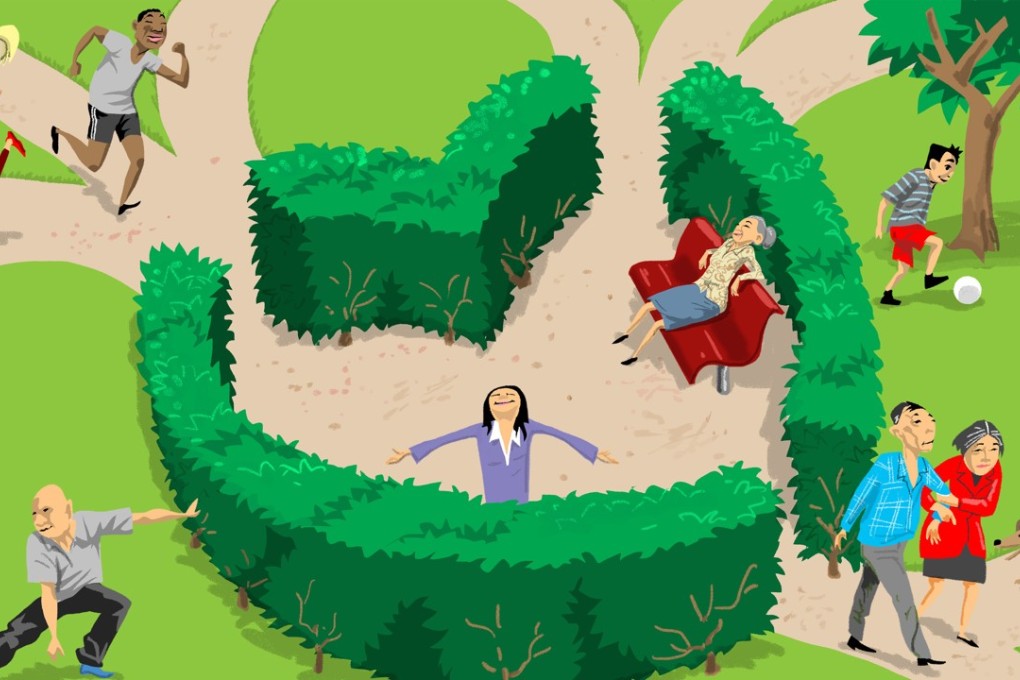Advertisement
Hong Kong needs more public open space, for people’s physical and mental well-being
Layla McCay and Paul Yip say a wealth of research points to the positive effects of public space, but it needs to be a natural environment, not a paved area with a few potted plants, for us to enjoy the full benefits
Reading Time:4 minutes
Why you can trust SCMP
0

Space is one of Hong Kong’s scarcest resources: a luxury commodity, available to those who can afford to pay. Sometimes, private space expands at the expense of public space. Even in public housing, private amenities like kitchens and bathrooms have driven the demise of communal facilities and seen us retreat further into our own small spaces, our neighbours becoming strangers. With half of the city’s households living in spaces smaller than 500 square feet, we need that public space to compensate; to stretch, relax, play and interact with our communities. It comes as no surprise to see so much mental unwellness arising from a shortage of space.
When we spend every day within a dense urban environment, it affects how we feel. It also affects our mental health: it can make us stressed, anxious and depressed. But it doesn’t have to. Densely built environments can strengthen any urban population’s ability to enjoy life, cope with stress, work productively and contribute to our communities. Public open space is at the heart of this effect. But Hong Kong has a public space deficit.
Xi Jinping says houses are ‘for living in, not for speculation’. But is Hong Kong listening?
Advertisement